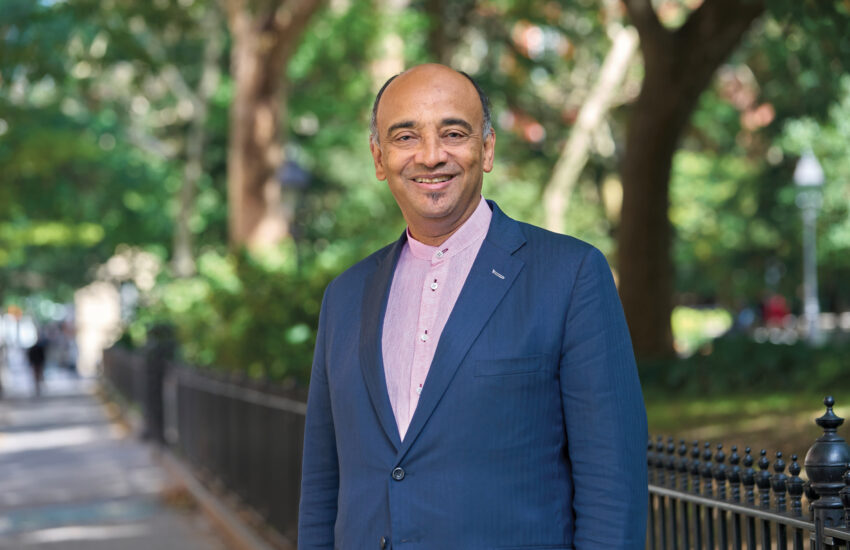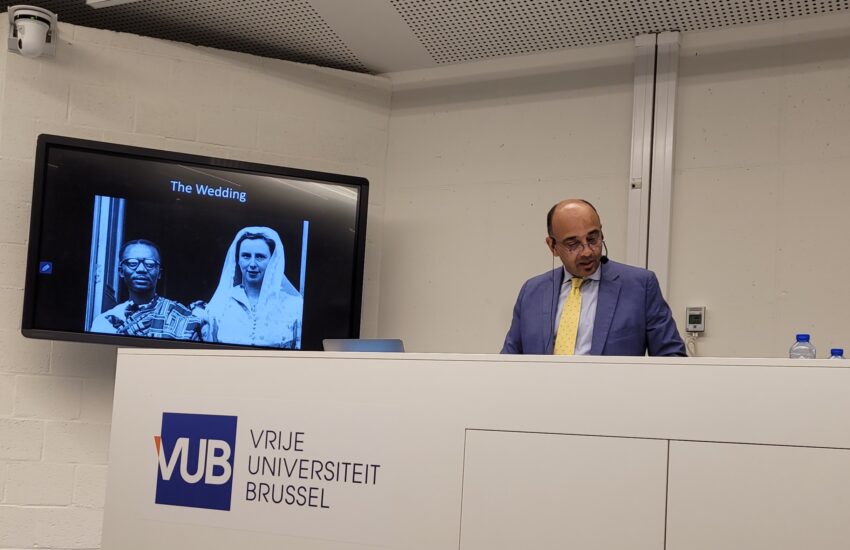Afropean Voices during Covid-19: Radically rethink Africa’s assertion in the world through the pandemic
 Lionel ZEVOUNOU (Benin) is co-founder of the Collective for the Renewal of Africa (CORA), a Pan-African intellectual collective of 100+ social and natural scientists, historians, writers, medical doctors and artist from across Africa and the Diaspora. He is also Associate Professor of Public Law at the University of Paris Nanterre (CTAD, UMR 7074), France, where he researches law, legal theory, social sciences and economic law. Since 2018, for five consecutive years, he has been distinguished by the Institut Universitaire de France, the highest honour among France-based academics. Lionel is now working on the relationship between race and law, particularly the tensions generated by the universalist claim of French law and colonial domination through the category of assimilation.
Lionel ZEVOUNOU (Benin) is co-founder of the Collective for the Renewal of Africa (CORA), a Pan-African intellectual collective of 100+ social and natural scientists, historians, writers, medical doctors and artist from across Africa and the Diaspora. He is also Associate Professor of Public Law at the University of Paris Nanterre (CTAD, UMR 7074), France, where he researches law, legal theory, social sciences and economic law. Since 2018, for five consecutive years, he has been distinguished by the Institut Universitaire de France, the highest honour among France-based academics. Lionel is now working on the relationship between race and law, particularly the tensions generated by the universalist claim of French law and colonial domination through the category of assimilation.
The health crisis over a year ago and in France, as in Europe, exposed the inequalities in access to healthcare across several national territories. In Île-de-France, Seine Saint-Denis, a department which hosts one of the largest concentration of immigrants to Europe, the pandemic accentuated the social and economic inequalities that residents regularly experience. According to the French National Institute of Statistics and Economic Studies, at the height of the COVID-19 crisis, in France, if you were a foreign-born national or resident your mortality rate was more than double the rate of someone born in France.
Disturbingly, the news from international channels on Africa were very distressing. The media frenzy is such that perhaps no one remembers it today, but a note from the French Ministry of Foreign Affairs’ Center for Analysis and Strategic Forecasting (CAPS) entitled “the Pangolin effect“, widely hyped by French media, linked coronavirus with the increased exposure to wildlife on continent to health, biosafety and global security risks. No one will ever know if the viral effect of this note was intended or not, but it produced tangible effects within France on the already growing negative perceptions about the African continent.
At the same time, within the African Union, the African Center for Disease Control and Prevention (Africa CDC), recently founded in 2017, was successful in equipping and training teams in all African countries to ensure they had the capacity of test for COVID-19. At the start of the pandemic, only six African countries were able to carry out tests.
Beyond the hyperbole that characterizes CAPS’ research, it showed certain lucidity. Few African countries were ready to deal with a major health crisis. This was the reality and we must not hide it from ourselves. We can still see it in their unequal and unfair access to vaccines or, previously, in the difficulty for the countries of the South to obtain masks and other protective equipment. We were more than ever the embodiment of the Third World.
It was by pondering this reality that the Collective for African Renewal (CORA), the project of a letter published on April 13, 2020, calling on the leaders of the continent to seize the crisis to radically rethink the policies applied to the continent was born. For too long discredited and inaudible, the words of African intellectuals were read in all their diversity. Beyond its human impact, the crisis is a revelation that touches the depths of our survival, our dignity and our souls; it calls on Africans to propose solutions to their problems without being dependent on circumstances linked to international relations. This is CORA’s objective: to try to unite the intellectual forces of the continent in order to renew how it is and can be perceived. If we don’t, we will remain dependent on the notes published by CAPS, Chatham House, Brookings Institute, etc. That’s why it’s just a matter of survival. All this has already been said by much more illustrious personalities: from Fanon to Cabral via Biko: emancipation will not come by anyone other than us.
This perspective is included in the upcoming Collateral Benefits Perspective Paper IV: Voices of the African Diaspora, a collaboration beteeen Collateral Benefits , Fundación Manos Visibles and Afrøpean.


